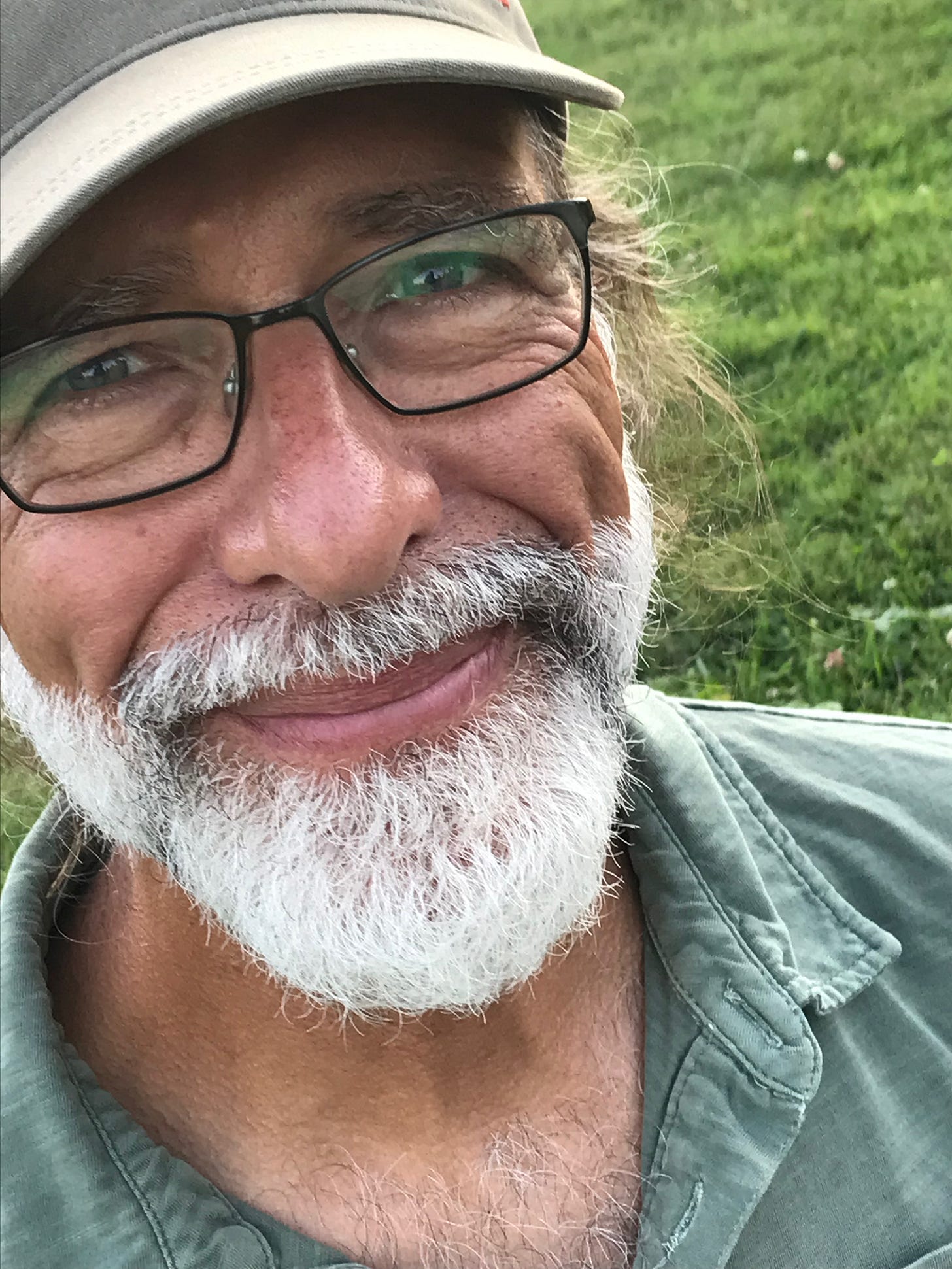Thank you for reading Shy Guy Meets the Buddha: Reflections on Work, Love, and Nature. If you enjoy these mindfulness-themed biographical essays and would like to show your support, please consider becoming a valued patron for only $5 a month. Or if you like, you could “Buy me a coffee.” Thank you! 💚
Recently, a reader,
, messaged me with a thoughtful question, and I was happy to attempt an answer. Patrick encouraged me to expand my response into an essay. Thank you for the inspiration, Patrick! 🙏I would welcome more questions like this from readers. They’re great prompts!
Q: Hi Don. I hope you're well. A question has been rattling around in my mind for a while and I thought, who better to ask than yourself.
Is there really such a thing as Enlightenment? I mean big enlightenment that reaches every part of our lives. Obviously small enlightenments happen. Sometimes someone I deeply respect, and suspect is Enlightened, takes a stance or does something that makes me think, a truly Enlightened person would never think/do that.
Kind regards,
Patrick.
A: Patrick, this is such a great question and I feel honored that you would consider me someone qualified to answer.
Is there such a thing as enlightenment? The short and honest answer is, I don’t know. But to be fair, I don’t think anyone knows. The following is my perspective, not a statement of fact.
I think the concept of enlightenment as most people understand it is a human-constructed one, invented by those who seek safety and security in the idea that there is a way out of this Great Unknown. Nobody knows where we come from, why we’re here, or where we go after we die. For many, the thought of living a purposeless or unexplained life is intolerable. The idea of accepting what is, as it is, in all its mystery and nowness, is as scary as balancing on the edge of a cliff. They need to believe there is something other than this, some destination—such as enlightenment—that’s going to make all this confusion go away. A path to “better.” (I admit this was me for much of my life.)
The problem with any path to any type of promised land is that its very purpose—to get somewhere other than here—is self-sabotaging. It takes one’s focus away from the very place, the only place, that peace and equanimity can be found: here and now.
I do not believe in enlightenment as some sort of magic transformation of the soul or spirit descended upon one who has studied all the precepts and holy scriptures, diligently meditated, or followed the “right” path.*
Even if enlightenment were a thing, we're still talking about human beings, not saints, not gods, so they of course are capable of making mistakes, of still holding false views within that so-called enlightened state. It seems to me quite impossible for a human being to suddenly become perfect, pure, without sin or suffering, incapable of making a mistake or feeling an emotion. It defies science.
I don't mean to sound so negative, though. It also seems that it is possible, if rare, for a person to undergo a sudden undeniable transformation of viewpoint, in which one realizes the true, non-self nature of experience, and thenceforth acts from that knowledge, no longer seeking outside answers or validation, and fully content with what is. But the speed at which a person matures into that kind of wisdom is irrelevant. For some it’s a flash of insight and for others a long and slow process. It doesn’t make the one enlightened and the other only wise but “not there yet.”
And I prefer not to call such wisdom “enlightenment,” because the term means too many things to too many people, and is redolent of supernatural sources. Awakened, evolved, or mature are more satisfactory to me. Though I still don’t think achieving such a state would make one perfect or infallible.
To address the second part of your question—what if an awakened person is behaving in a way that doesn’t seem wise or enlightened—I would first question my own expectations and beliefs. Why do I want there to be enlightened people whom I can venerate or aspire to, who will never disappoint me? This is an opportunity to learn about myself.
Secondly; sure, there is a good chance that person is only posing as a sage. Or maybe they’re actually confused about the nature of some past euphoric experience they had; they’re holding onto the incident in the belief that they now exist in a kind of elevated spiritual state, that they’re not the same person they were before (they’re not the same person they were before—nobody is—but clinging to and professing enlightenment is probably going to lead to disappointment and disillusionment, for oneself and for one’s followers). Or, finally, it could be that they are just human; they do understand some things about the nature of existence, but they also battle some inner demons, like we all do.
Truthfully, anyone who says, “I’m enlightened,” probably isn’t, because they’re talking about yesterday, not today. They’re attaching to a past experience and labeling it, labeling themselves. Labels can never be accurate because everything changes from moment to moment; nothing is permanent. (This alone is enough to debunk any idea of enlightenment. In order for enlightenment to exist as the permanent, unchanging state people believe it to be, it would have to contradict all of the Buddhist teachings on impermanence and defy all of the sciences.)
Finally, I have to say that I don't like when those who consider themselves Buddhists casually speak at Sangha meetings about the idea or hope of "becoming enlightened," or how they are "not yet enlightened." I think this kind of talk is misleading to those new to meditation. It gives them false hope, and worse, leads them into goal-seeking instead of truly learning what it means to be present to the here and now. Wanting to be enlightened is the very state that’s going to keep one in a never-ending loop of desire and disappointment.
Thanks again for the question, Patrick. I hope my views on enlightenment were helpful. I’d like to remind my readers again that I’m not trying to persuade them or change anyone’s beliefs, nor am I making any statements of fact regarding the unknown. I respect that there are questions whose answers are likely beyond human apprehension, and I’m okay with that. 😊
Don
*Actually, I don’t “believe” in anything; I don’t think it’s necessary or healthy to believe in things that cannot be known.







Don, I find myself agreeing deeply with your reflections. I, too, have gone through what I can only describe as a quantum transformation—an experience that shifted my life in nearly every imaginable way, and in a single breath. Yet even then, I would not call it enlightenment.
What I discovered is less about transcendence and more about what I call subscendence—turning inward, meeting the parts of myself I used to fear or push aside. By giving those hidden places compassion and space, I came to understand them and integrate them. That, for me, has been the real work.
And still, nothing feels fixed. We are always changing, always breathing impermanence. Even after that sudden transformation, I carry every earlier version of myself with me. I cannot transcend them—they are part of me.
I have had moments of dissolving into everything around me, of feeling whole and at peace in my body and in the world. Those encounters were beautiful, perhaps even wise-making. Yet transcended? No. I see them as glimpses, reminders, but not destinations.
These days, I no longer tie myself to rigid beliefs or the hope of some final state. What brings me ease is making peace with constant change, meeting life as it unfolds.
Very interesting read - what happens when enlightened people realise they are not so enlightened as they thought?
Is this partly why why people are drawn to them and end up in a cult?